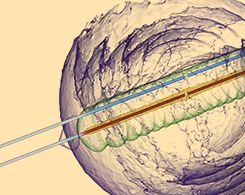Today in Science Blog Posts

Happy Birthday, David Crosthwait
Fun fact: The original HVAC system for Rockefeller Center in New York City was designed by David Crosthwait, an engineer with 100+ patents.

Happy Birthday, Oliver Heaviside
At the age of 16, Oliver Heaviside’s formal education came to an end. However, he went on to discover the first coaxial cable, the modern Maxwell’s equations, and the Kennelly–Heaviside layer.

The Science Behind Plant-Based Foods
You have probably heard of almond milk, coconut milk, and oat milk. But are you familiar with potato milk? This milk substitute hit grocery shelves in Europe in early 2022.

A Novel Technique for Producing Ultrastrong 2D Polymers
A group of materials science researchers have developed a new polymerization technique for producing strong and lightweight 2D polymers (a creation that was thought to be impossible!)

Happy Birthday, Norbert Rillieux
Sugar has been around for centuries, but the revolution in sugar processing occurred less than 200 years ago. Learn about the life and work of the engineer behind this revolution.

Happy Birthday, Ralph Fowler
During his career, Ralph Fowler supervised 64 doctoral students at Cambridge University, 3 of whom would become Nobel laureates.

Happy Birthday, Joseph Petzval
In 1840, this Hungarian physicist introduced a lens design that could gather more than 20 times as much light as lenses used in earlier cameras.

How Long Does It Take an Engineer to Turn on a Light Bulb?
Misconception about electricity: Electrons carry the energy in an electrical circuit. Today, we investigate this theory with simulation.
